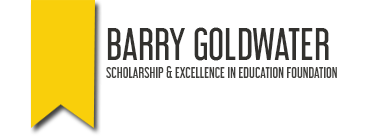Swati Varshney, 2009 Goldwater Scholar
If you are looking for Swati Varshney and you cannot find her in the lab, you may want to look up to the sky. Varshney is a talented skydiver, having picked up the sport shortly after graduating from Carnegie Mellon University (CMU) in 2010. She initially tried it simply to cross it off her bucket list, but fell in love with it immediately. Varshney says, “When your brain is always acting in hyper drive, having an experience like skydiving forces you to shut everything else out, and focus only on the moment.”
Varshney pursues all of her passions with the same fearless determination. A 2010 graduate of CMU, with a BS in Chemistry and a minor in Biomedical Engineering, Varshney was awarded a Goldwater Scholarship in 2009. While an undergraduate, she was an Andrew Carnegie Society Scholar, the university’s highest undergraduate award, as well as being elected to both Phi Beta Kappa and Phi Kappa Phi.
When she applied for the Goldwater Scholarship, it was the first time Varshney thought critically about the research she was doing in the McCullough Laboratory at the Mellon Institute, and its applications, as well as what it meant for her future goals. The Goldwater Scholarship helped her crystallize her research focus, and fueled her desire to move new technologies from the lab to the market. Varshney says the Goldwater opened many doors for her. It is a scholarship that people recognize and know across the world.
After graduating from Carnegie Mellon, Varshney was awarded a Churchill Scholarship to pursue a MPhil in Micro- and Nanotechnology Enterprise at Cambridge University, a joint program between Materials Science and Business. Her passion for interdisciplinary work was nurtured while at Cambridge, as well as her skills as a researcher. Varshney worked in the Cavendish Laboratory’s Optoelectronics Group, fabricating and testing organic solar cell materials. This work was a continuation of her research as an undergraduate in the McCullough Laboratory with Professor Rick McCullough, synthesizing conductive polymers for thin-film organic transistors and solar cells. That connection to McCullough proved important in instilling Varshney’s interest in pure research coupled with a desire to bring new technologies to market.
Varshney returned to the United States to begin her PhD in Materials Science and Engineering at MIT, where her research in the Ortiz Structural Biomaterials Laboratory focused on developing biomimetic flexible body armor for human use inspired by fish scale biomechanics. Varshney’s research is grounded in an interdisciplinary approach, as she continually seeks to integrate ideas from various fields to create something new. Varshney’s doctoral work was awarded a National Science Foundation Graduate Research Fellowship.
At MIT, she restarted the Skydiving Club, and has served as President and the Gear and Sponsorships Officer for the club. Varshney says itis easy to make the connection between extreme sports and STEM, and she loves bringing science to students by focusing on the science of skydiving. Through the Skydiving Club, she reached out to do various service activities like hosting booths at the Cambridge Science Festival’s Science of Sports Day and the USA Science and Engineering Festival. She worked together with her colleagues who gave talks on the Physics of Skydiving for MIT’s Splash event and MIT K12 Live! at the MIT Museum. She also did the Science Out Loud video — Science Out Loud is a video series through MIT-K12 (http://www.k12videos.mit.edu/#!science-out-loud/dd886).
Varshney points to key mentors for her initial success in the Goldwater Scholarship that has helped launch her career, including Karen Stump, Teaching Professor in Chemistry at Carnegie Mellon and Rick McCullough, devoted faculty members and strong teachers. She also credits support from the Fellowships and Scholarships Office and the Undergraduate Research Office.
Varshney recently completed her Ph.D. at MIT and plans to relocate to Washington, D.C., to seek employment as a research staff scientist for a federal contactor.

